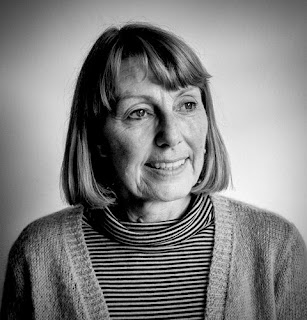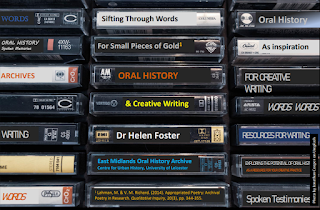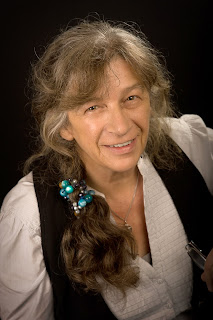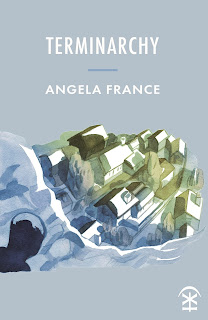Anna Larner is an English Literature and Museum Studies graduate. Her debut novel, Highland Fling, was a finalist in the 2018 Golden Crown Literary Society Awards. Her second novel, Love’s Portrait, was a finalist in the 2019 Rainbow Awards and in the 2019 Foreword INDIES Book of the Year Awards.
Her short story "Hooper Street" can be found in the Bold Strokes Books anthology Girls Next Door. Her poems have been published with Paradise Press and the University of Leicester's Centre for New Writing.
Her website is here.
About Highland Whirl, by Anna Larner
When city girl about town Roxanne Barns reluctantly accepts a holiday invite to her best friend Eve’s birthday party in the Scottish Highlands, the last thing she expects is to fall for the very person she’s been dreading seeing again—the feisty Highlander, Alice Campbell.
The moment Alice learns that Roxanne is visiting her home hamlet of Newland, she couldn’t be more suspicious or defensive. A warm welcome is certainly not the plan, let alone falling in love.
Despite Eve’s warnings that Roxanne is not relationship material, Alice can’t ignore her growing attraction. She absolutely trusts Eve’s judgment, but taking her advice just might break Alice’s heart.
Highland Whirl reunites readers with the characters and landscape of Highland Fling in an emotionally enthralling story of trust, friendship, family, and love.
Highland Whirl is the sequel to the novel Highland Fling. You can read a blogpost by Anna, ‘On Writing a Sequel,’ which describes the complexities of writing a story that is both new and yet also predetermined by the story told before, on Bold Strokes Books website here. Below, you can read an extract from the novel.
From Highland Whirl
CHAPTER ONE
“Hey, Rox.”
“Evie Eds! Hi. Hold on a mo. I’m just at The Brewer’s.” With her mobile phone pressed against her ear, Roxanne Barns pushed against the brass fingerplate of the heavy door that opened from the street to the small porch of The Brewer’s Arms. “So, how’s tricks—wait, what the …?” No sooner had she stepped inside, than a pungent odour caught and stung at the back of her throat. She coughed out, “No way.”
Eve chuckled. “That busy, huh? Well, it is a Friday night.”
“It’s pink. Like, totally pink.” Roxanne stared in horror at her beloved pub. Nearly every wall and surface had been subject to a violent assault of eye-bruising, nausea-inducing pink paint. Even the floorboards, tacky under her feet, had not escaped the savage lick and slap. “Why? I mean … why?” Her disbelieving gaze eventually settled at the far corner of the room where the green felt of the snooker table seemed to float like an island in an ocean of strawberry milk. And was she imagining it, or could the circles on the dartboard really be expanding and contracting against the hallucinogenic wall? Was this what it was like to take acid? The space was trippy for sure but not in a good way.
“What’s pink?” Eve asked, her voice piqued with concern. “You’ve not got a rash, have you?”
“No, I haven’t got a rash. It’s The Brewer’s. It’s been … violated.”
“Oh no. What, like burgled?”
“Burgled? It’s far worse. They’ve attempted to redecorate.”
“Oh.”
“Yep. Oh.”
“You never know—it might grow on you.”
“Yeah, judging by the smell, it’s a distinct possibility.”
Accompanied by Eve’s pained laughter, Roxanne made her way to the bar. En route, she spotted a group of regulars standing huddled together by the open back door. They clearly figured a view of the bins was preferable to their usual seat and a lungful of toxic fumes.
“What the hell, Bel?” Roxanne said to her ex Belinda, who had bravely broken free from the group to risk a lifetime of certain asthma.
“It’s supposed to be Crème de la Rose,” Belinda said, casting her gaze from chair to wall to ceiling. “But dodgy Dave got a job lot from a mate, so it’s more like Flaming Flamingo.”
“You don’t say?” Roxanne lifted her jacket collar across her nose. “Personally, I’m getting the vibes of Pepto Bismol.”
Belinda laughed, which triggered a cough. She pressed her scarf against her face and gestured to the phone in Roxanne’s hand. “Is that Eve?”
“Yep.” Roxanne poked the speaker button and rested her mobile on the counter next to her pint of lager. Following an unspoken arrangement that had developed over the years, the barman had already drawn her pint. Roxanne’s order never changed, after all, and neither did her need for a pint of Carling straight after her nursing shift in A&E. It wasn’t a matter of habit. It was simply survival.










